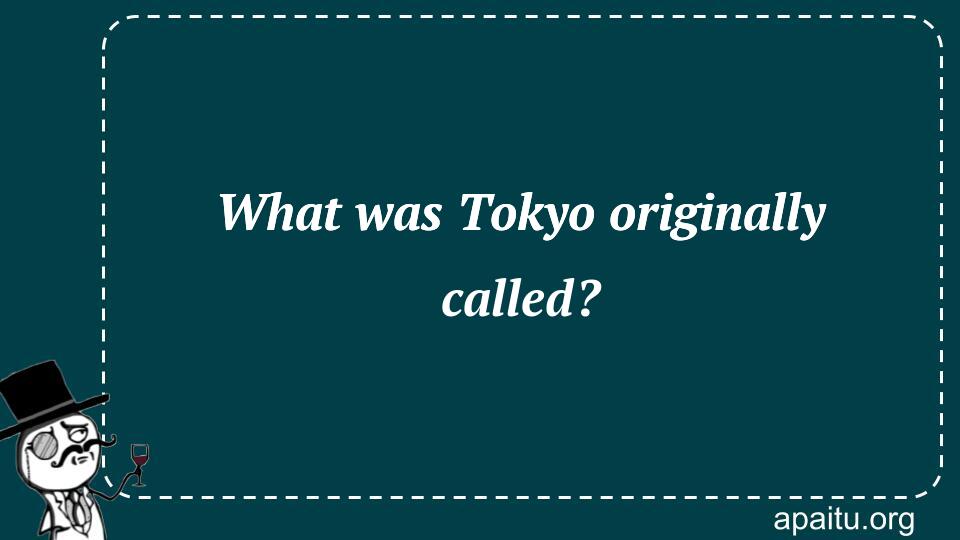Question
Here is the question : WHAT WAS TOKYO ORIGINALLY CALLED?
Option
Here is the option for the question :
- Taisho
- Tokugawa
- Akita
- Edo
The Answer:
And, the answer for the the question is :
Explanation:
Historically, Tokyo was known as Edo. The city’s name was changed in 1868 when the Tokugawa family’s military dictatorship of Japan ended. At that time, Emperor Meiji moved the imperial home and court from Kyoto to Edo, and renamed it Tokyo, signaling the beginning of the Meiji era. The grounds of the Imperial Palace in Tokyo are still open to the public and may be reached on foot from Tokyo Station in about 10 minutes.

Tokyo, the bustling capital city of Japan, is known around the world for its vibrant culture, stunning architecture, and rich history. But many people may not be aware of the fact that Tokyo has a long and fascinating past, and was known by a different name for much of its early history.
Originally, Tokyo was known as Edo, and served as the political and cultural center of Japan during the Edo period, which lasted from 1603 to 1868. During this time, Edo was a bustling city with a thriving economy, and was home to a diverse array of people, from wealthy merchants to samurai warriors to ordinary laborers and artisans.
Under the rule of the Tokugawa shogunate, Edo became a center for political power and cultural innovation, and experienced a period of great growth and prosperity. The city was home to many important cultural institutions, including the Kabuki theater and the ukiyo-e art movement, which produced some of the most iconic images of Japanese culture.
In 1868, Edo underwent a major transformation when it was renamed Tokyo and became the capital city of Japan. This change was part of a broader effort to modernize and westernize Japan, and to create a more centralized and unified government.
Since then, Tokyo has continued to evolve and grow, becoming one of the most important and influential cities in the world. Today, it is home to a population of over 13 million people, and is a hub of culture, commerce, and innovation.
however, Tokyo remains a city with a rich and fascinating history, and is a testament to the enduring power of human creativity and resilience. By exploring the city’s many cultural landmarks and historical sites, we can gain a deeper appreciation for the unique and complex history of this amazing city, and for the many different people and cultures that have called it home over the centuries.